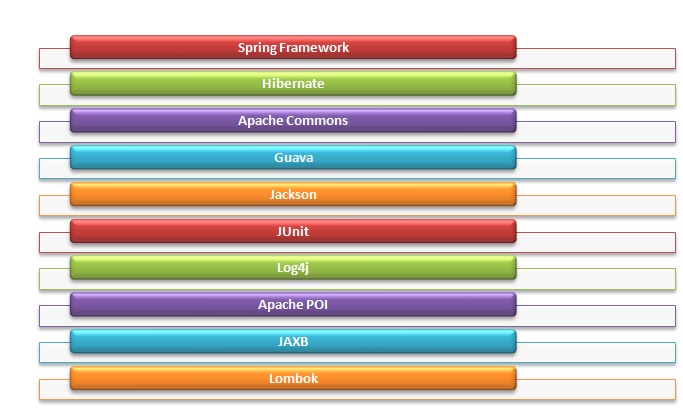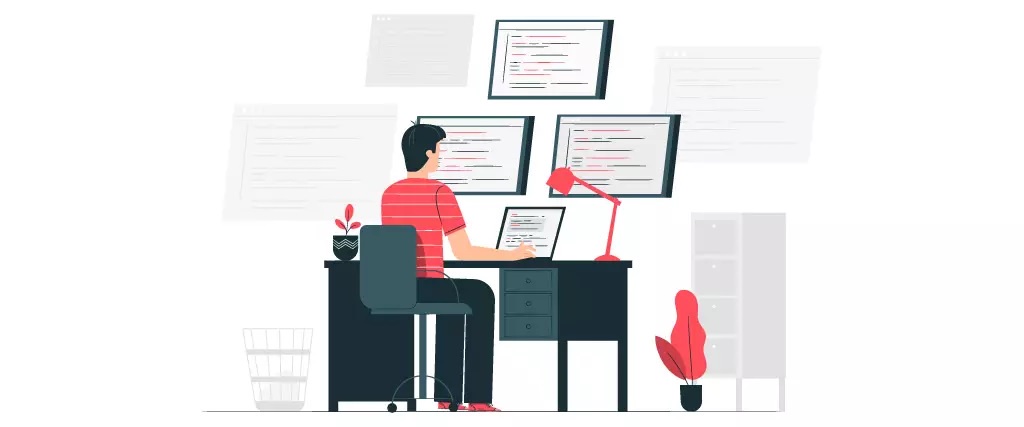Java, renowned for its versatility and robustness, is a preferred choice for custom application development. Leveraging libraries can significantly enhance the development process by providing pre-built solutions to common challenges. Custom Java application development services offer tailored solutions leveraging the versatility and robustness of Java to address specific business needs and requirements. In this article, we'll explore 10 essential libraries that empower developers to streamline development, boost productivity, and build high-quality custom Java applications.

Spring Framework:
Spring Framework is a comprehensive ecosystem that simplifies Java development with features like dependency injection, aspect-oriented programming, and robust support for building enterprise applications. It offers modules for web development (Spring MVC), data access (Spring Data), and security (Spring Security), making it indispensable for custom application development.
Hibernate:
Hibernate is an object-relational mapping (ORM) framework that facilitates seamless interaction between Java objects and relational databases. By automating database interactions and providing a high-level abstraction layer, Hibernate simplifies data persistence and accelerates development, making it a go-to choice for custom Java applications requiring database integration.
Apache Commons:
Apache Commons is a collection of reusable Java components that address common programming tasks. From utility classes for string manipulation and file handling to data structures and input/output operations, Apache Commons provides a rich set of functionalities that streamline development and minimize boilerplate code, enhancing productivity and code quality.
Guava:
Guava, developed by Google, offers a set of core libraries that complement the Java standard library. It includes utilities for collections, caching, concurrency, functional programming, and more. Guava's well-designed APIs and efficient implementations empower developers to write cleaner, more concise code and leverage modern programming paradigms effectively.
Jackson:
Jackson is a high-performance JSON (JavaScript Object Notation) processing library for Java. It provides robust support for parsing JSON data into Java objects (deserialization) and serializing Java objects into JSON (serialization). With its flexibility, configurability, and extensive feature set, Jackson simplifies JSON handling in custom Java applications, facilitating seamless integration with web services and APIs.
JUnit:
JUnit is a popular testing framework for Java, widely used for writing and executing unit tests. With its simple annotation-based syntax and comprehensive assertions, JUnit enables developers to validate the behavior of individual components in isolation, ensuring code reliability and facilitating test-driven development (TDD) practices in custom Java application development.
Log4j:
Log4j is a robust logging framework for Java, offering flexible configuration options, logging levels, and output formats. It enables developers to log informational, warning, error, and debug messages efficiently, facilitating debugging, troubleshooting, and performance monitoring in custom Java applications. Log4j's asynchronous logging capabilities ensure minimal impact on application performance.
Apache POI:
Apache POI (Poor Obfuscation Implementation) is a Java library for working with Microsoft Office documents, including Excel spreadsheets, Word documents, and PowerPoint presentations. It provides APIs for reading, writing, and manipulating Office file formats programmatically, making it invaluable for custom Java applications that involve document processing and generation.
JAXB:
JAXB (Java Architecture for XML Binding) is a Java API for mapping XML documents to Java objects and vice versa. It simplifies XML data binding by generating Java classes from XML schema definitions (XSD) and providing APIs for marshalling (serialization) and unmarshalling (deserialization) XML data. JAXB is essential for custom Java applications dealing with XML-based data exchange.
Lombok:
Lombok is a library that helps reduce boilerplate code in Java applications by providing annotations to generate common code constructs such as getters, setters, constructors, and equals/hashCode methods at compile time. By eliminating repetitive code, Lombok improves code readability, maintainability, and developer productivity, making it a valuable addition to custom Java application development projects.
Conclusion: These 10 essential libraries serve as invaluable tools for custom Java application development, empowering developers to overcome common challenges, accelerate development, and deliver high-quality solutions. By leveraging the capabilities of these libraries, developers can streamline development workflows, enhance code quality, and build robust, scalable Java applications that meet the diverse needs of businesses and users alike.


No comments yet